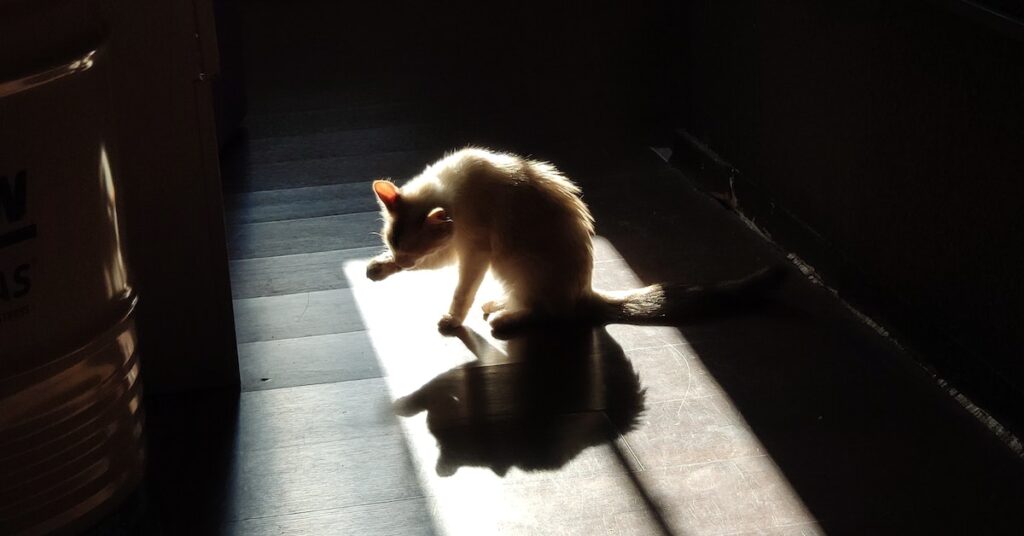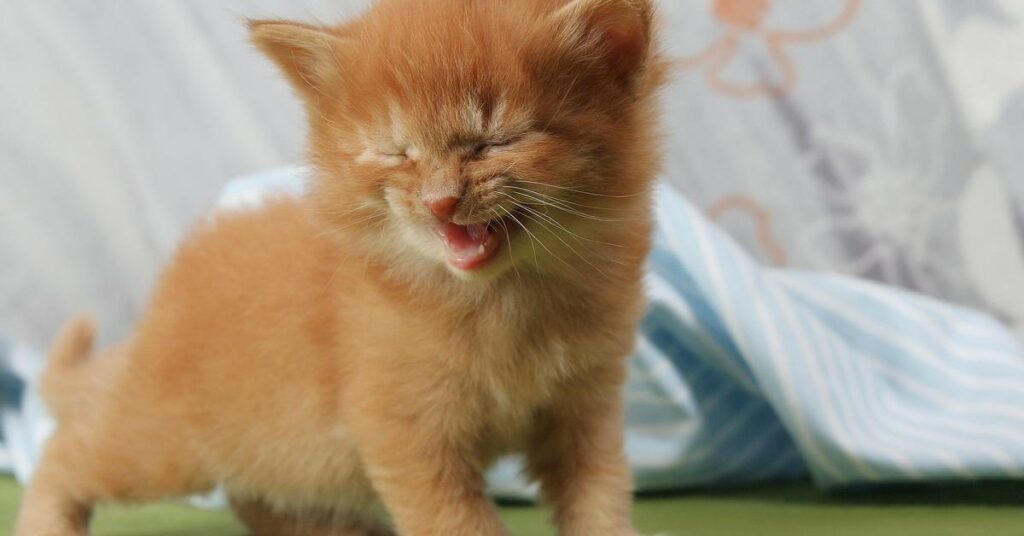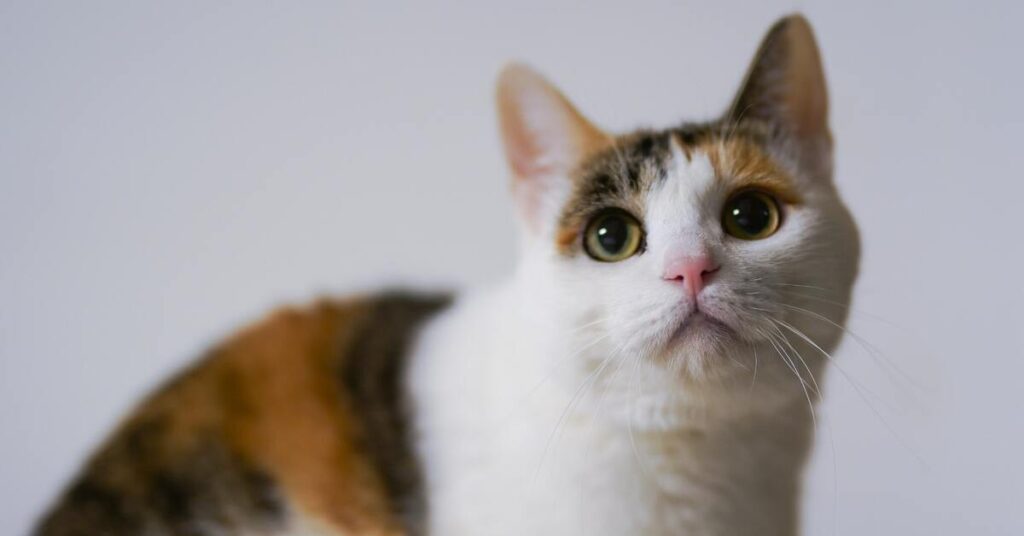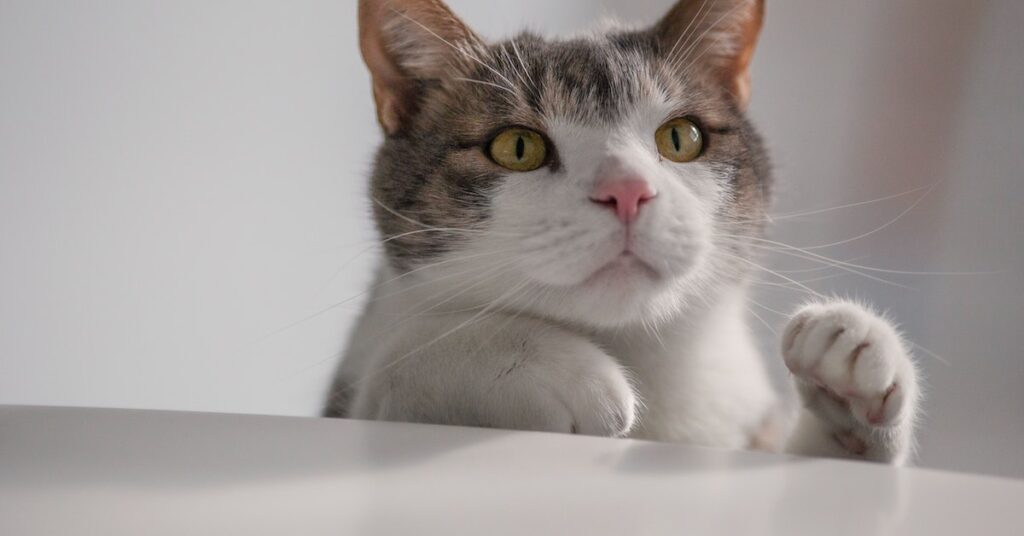Anxiety in cats can be a sign of several things. It could be an illness, a change in routine, or something as simple as a loud noise. If you notice these symptoms in your cat, you should consult your vet. If you suspect your cat is suffering from anxiety, you should look for the following signs:
Change of eating habits
One of the most common symptoms of anxiety in cats is a change in eating habits. If your cat suddenly stops eating or is less active, you should visit the vet. Although this behavior may be temporary, it could signal an underlying medical problem. Other symptoms of anxiety include diarrhea, vomiting, poor coat condition, and eating of non-food items.
Your veterinarian will conduct a physical exam and a urine test to rule out any medical conditions that could be causing your cat’s behavior. Depending on the results, additional tests may be recommended. Once a cause has been determined, your veterinarian will develop a treatment plan for your cat. Until then, you can try reducing the stressors that are causing your cat to be nervous.
One of the most common causes of anxiety in cats is the inability to find food. Your cat may become picky or eat less frequently, or it might be eating at odd hours. You should take these changes seriously, as they can result in digestive problems, weight loss, and muscle loss. Regardless of the cause, it’s important to monitor your cat’s eating habits, especially during stressful periods.
If you suspect that your cat is suffering from anxiety, consult with a veterinarian as soon as possible. An untreated anxiety will only lead to more unwanted behaviors and health problems. A veterinarian can refer you to a board certified veterinary behaviorist, who has undergone additional training and must pass regular board examinations to maintain their certification. Anxiety in cats is a serious condition, and if left untreated, it can lead to serious health problems.
Changing eating habits is a common sign of anxiety in cats, and it can be a sign of serious health problems. Your cat may become less hungry than usual, or it may even refuse to eat altogether. Either way, the change in eating habits should be investigated by a veterinarian.
Change of bathroom habits
Changes in bathroom habits can be signs of anxiety in cats. Your cat may stop using the litter box or urinate more often. Your cat may also try to stay close to you at all times. If you notice these changes, speak with your veterinarian. You can ask your vet to prescribe an anti-anxiety medication or to change certain features of your home. Your veterinarian can help you determine the source of the anxiety in your cat.
If your cat is not using the litter box regularly, there could be a medical issue that’s causing this behavior. If your cat is constantly hiding in a cat box, he may be under stress and not feel comfortable using the box. Other signs of anxiety in cats include destructive behavior and lack of stimulation. Providing your cat with a scratching post or cat tree can give them a healthy outlet for stress.
If your cat suddenly starts pooping in the floor, it may be due to an illness. Usually, this is not a cause for alarm, but it does require medical attention. Taking your cat to the vet is necessary to rule out major medical problems. Make note of how often your cat begins to poop and how consistently it happens.
A veterinarian can help you determine the cause of the anxiety in your cat by observing its behavior. Depending on the severity of the anxiety, your veterinarian may prescribe a medication to help alleviate the stress. You can also try calming aids, which can help your cat deal with the anxiety.
Change of urination
Change of urination is one of the first symptoms of stress in cats. When your cat is stressed or overly anxious, it will exhibit symptoms such as increased urination and change in eating habits. It may also develop urinary problems such as urinary tract disease. Regardless of the reason, if your pet is not using the litter box, it’s worth taking note of these signs.
Inappropriate urination in cats can indicate a range of medical conditions, including urinary tract infections and systemic diseases. The first step in treating your cat is to rule out medical problems. However, you must remember that cats don’t always act ill. Urinary tract disease and social and environmental stress can cause your cat to spray excessive urine or mark objects.
Anxiety is also a risk factor for general urinary house soiling and periuria. Other risk factors include living in a multi-cat household and significant social and environmental changes. Anxiety also increases the likelihood of idiopathic cystitis. In addition, pain and chronic kidney disease are specific risk factors for periuria in cats.
If you suspect anxiety in your cat, changing his routine can help alleviate this problem. Using a calming medication is often effective. You may also want to seek the advice of a Certified Applied Animal Behaviorist (CAAB) to determine the best course of treatment for your feline friend. In addition, you should avoid making the situation worse by rubbing your cat’s nose in the urine or throwing things at it. You should also avoid using ammonia-based cleanser on your cat. The ammonia will attract the cat to urinate again.
If the behavior is erratic, you should seek the help of a veterinarian as soon as possible. This problem can have serious medical consequences if not treated promptly. The vet may also prescribe medication for the anxiety in your cat. However, be aware that medication can have side effects and should only be used in cases where other treatment methods have failed.
Change of behavior
A change in behavior can be an indicator that your cat is experiencing anxiety. This change in behavior can be triggered by a variety of circumstances. It could be due to a traumatic event that has caused your cat to become afraid, or it could be the result of a specific stimulus. Either way, you should talk to your veterinarian about the situation to find a solution.
Changes in the way your cat interacts with you and other family members can also be a sign that your pet is under stress. Cats often love to interact with family members and their human guardians, so if they suddenly refuse to engage in social interactions, this is a major red flag that should be addressed immediately. Other signs of anxiety include compulsive behaviors like over grooming, excessive tail-chasing, and repetitive pacing.
Cats that are experiencing anxiety often hide more, urinate inappropriately, increase scratching, and vocalize. There are many different causes of anxiety in cats, and your veterinarian can diagnose it with a full physical exam. He can also run a health and stress test, which can help determine the exact cause of your cat’s anxiety.
If your cat experiences anxiety or fear in stressful situations, it is imperative to visit your veterinarian immediately. Your veterinarian will be able to prescribe medications that will alleviate the fear and help your cat cope with the situation. In severe cases, your vet may recommend a behavior therapist to work with you and your cat.
Change in immune system
Cats exhibit varying signs of anxiety, ranging from mild to severe. Some cats show aggression can be a sign of anxiety. While textbook symptoms may be a clue, you should remember to consider context when diagnosing your cat. For example, if your cat is peeing outside of the litter box, it could be a sign of stress.
Cats that show signs of stress may be at risk for several medical conditions. For example, anxiety can lead to Feline Lower Urinary Tract Disease and Upper Respiratory Infections. Symptoms of these illnesses may include increased frequency and difficulty urination. They may also exhibit respiratory symptoms like sneezing, congestion, or discharge.
Cats’ immune systems are highly developed, but constant stress can compromise their ability to fight off infection. Stress also saps the body’s energy, making minor illnesses harder to fight. Cats that get sick frequently may be exhibiting signs of anxiety, and if this continues, the cat may be suffering from a health issue.
Anxiety can lead to overgrooming and behavioral issues, as well as a range of medical conditions. Anxiety also affects the immune system. The immune system is one of the first defenses against disease, so it’s important to address any symptoms in a timely fashion. Anxiety can also lead to immune system suppression, which may lead to a variety of problems.
Anxiety can also be a symptom of depression. As a result, your cat can develop destructive or depressive behavior. The stress can also affect your cat’s ability to communicate with you. Fortunately, there are steps you can take to minimize the stress in your cat’s life. First, you can make sure your cat is getting the necessary nutrients and exercise. Also, provide fresh water and a safe place for your cat to sleep.








